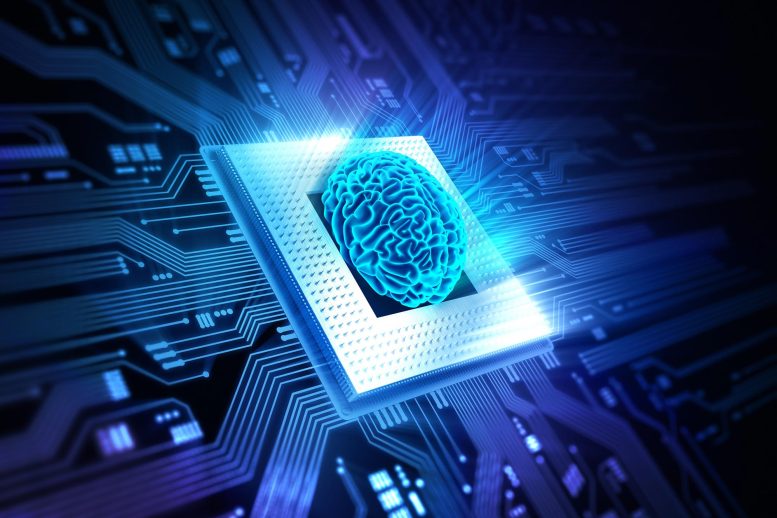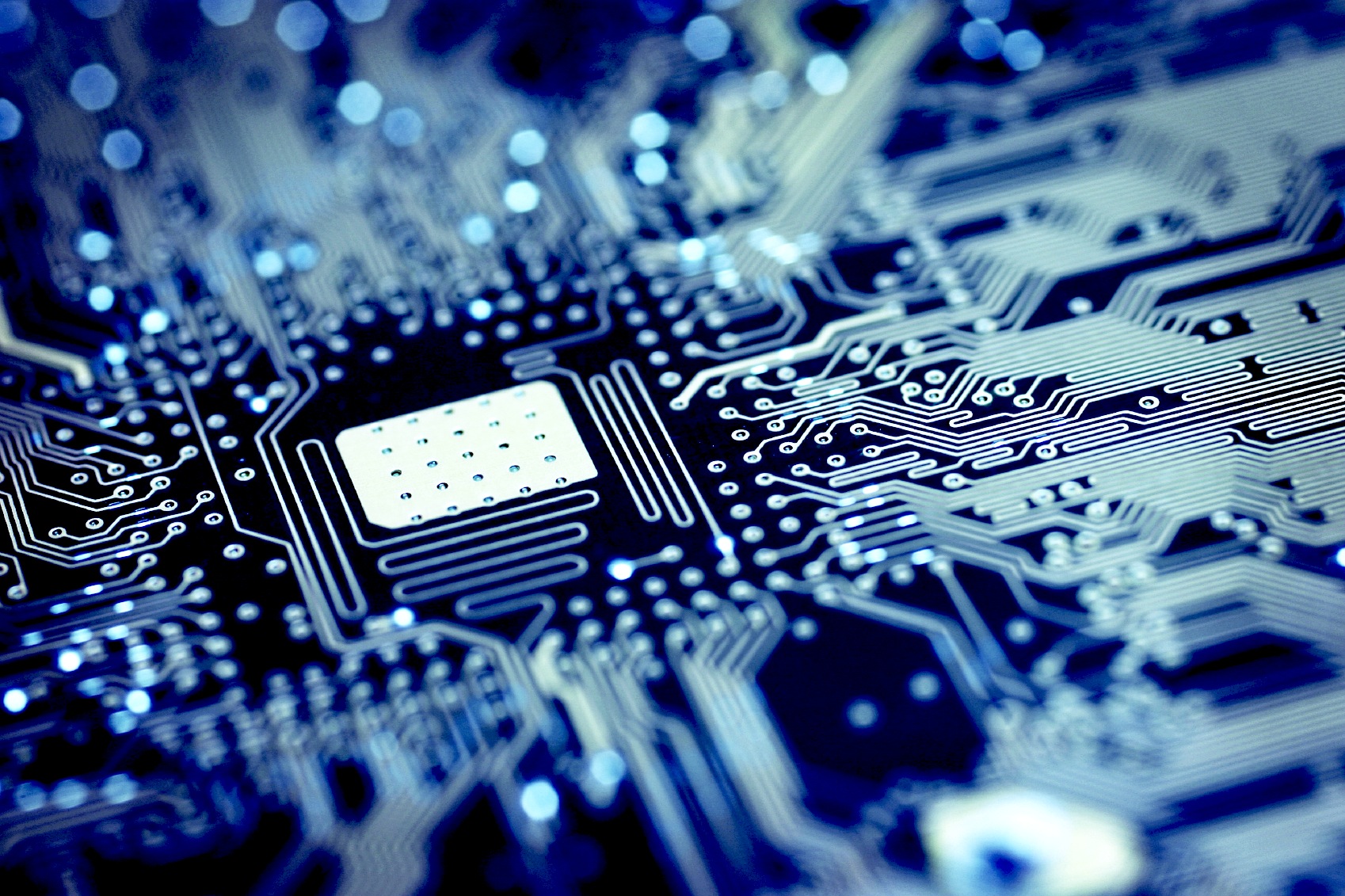
Organoid intelligence (OI) is an rising medical area that seeks to create biocomputers by using lab-grown mind organoids as “organic {hardware}.”
Johns Hopkins researchers wreck floor on new area of ‘organoid intelligence’.
In line with researchers at Johns Hopkins College, a “biocomputer” powered via human mind cells may well be advanced inside of our lifetime. This generation is anticipated to exponentially enlarge the functions of recent computing and open up new spaces of analysis.
The workforce’s plan for “organoid intelligence” used to be defined in a contemporary article revealed within the magazine Frontiers in Science.
“Computing and synthetic intelligence were riding the generation revolution however they’re attaining a ceiling,” stated Thomas Hartung, a professor of environmental well being sciences on the Johns Hopkins Bloomberg Faculty of Public Well being and Whiting Faculty of Engineering who’s spearheading the paintings. “Biocomputing is a gigantic effort of squeezing computational energy and lengthening its potency to push previous our present technological limits.”

Magnified symbol of a mind organoid produced in Thomas Hartung’s lab, dyed to turn neurons in magenta, mobile nuclei in blue, and different supporting cells in crimson and inexperienced. Credit score: Jesse Plotkin/Johns Hopkins College
For just about 20 years scientists have used tiny organoids, lab-grown tissue comparable to absolutely grown organs, to experiment on kidneys, lungs, and different organs with out resorting to human or animal trying out. Extra just lately Hartung and co-workers at Johns Hopkins were running with mind organoids, orbs the dimensions of a pen dot with neurons and different options that promise to maintain fundamental purposes like studying and remembering.
“This opens up analysis on how the human mind works,” Hartung stated. “As a result of you’ll get started manipulating the device, doing issues you can’t ethically do with human brains.”
Hartung started to develop and collect mind cells into purposeful organoids in 2012 the use of cells from human pores and skin samples reprogrammed into an embryonic stem cell-like state. Every organoid accommodates about 50,000 cells, concerning the dimension of a fruit fly’s fearful device. He now envisions construction a futuristic laptop with such mind organoids.
Computer systems that run in this “organic {hardware}” may within the subsequent decade start to alleviate energy-consumption calls for of supercomputing which can be changing into an increasing number of unsustainable, Hartung stated. Even supposing computer systems procedure calculations involving numbers and information sooner than people, brains are a lot smarter in making advanced logical choices, like telling a canine from a cat.

Thomas Hartung with mind organoids in his lab on the Johns Hopkins Bloomberg Faculty of Public Well being. Credit score: Will Kirk/Johns Hopkins College
“The mind continues to be unequalled via trendy computer systems,” Hartung stated. “Frontier, the newest supercomputer in Kentucky, is a $600 million, 6,800-square-feet set up. Best in June of closing 12 months, it exceeded for the primary time the computational capability of a unmarried human mind — however the use of 1,000,000 instances extra calories.”
It could take many years ahead of organoid intelligence can energy a device as sensible as a mouse, Hartung stated. However via scaling up manufacturing of mind organoids and coaching them with synthetic intelligence, he foresees a long term the place biocomputers reinforce awesome computing velocity, processing energy, knowledge potency, and garage functions.
“It’ll take many years ahead of we reach the purpose of one thing related to any form of laptop,” Hartung stated. “But when we don’t get started growing investment methods for this, it is going to be a lot more tough.”
Organoid intelligence may additionally revolutionize drug trying out analysis for neurodevelopmental issues and neurodegeneration, stated Lena Smirnova, a Johns Hopkins assistant professor of environmental well being and engineering who co-leads the investigations.
“We wish to examine mind organoids from most often advanced donors as opposed to mind organoids from donors with autism,” Smirnova stated. “The equipment we’re creating in opposition to organic computing are the similar equipment that may permit us to know adjustments in neuronal networks explicit for autism, with no need to make use of animals or to get right of entry to sufferers, so we will perceive the underlying mechanisms of why sufferers have those cognition problems and impairments.”
To evaluate the moral implications of running with organoid intelligence, a various consortium of scientists, bioethicists, and contributors of the general public were embedded throughout the workforce.
Reference: “Organoid intelligence (OI): the brand new frontier in biocomputing and intelligence-in-a-dish” via Lena Smirnova, Brian S. Caffo, David H. Gracias, Qi Huang, Itzy E. Morales Pantoja, Bohao Tang, Donald J. Zack, Cynthia A. Berlinicke, J. Lomax Boyd, Timothy D. Harris, Erik C. Johnson, Brett J. Kagan, Jeffrey Kahn, Alysson R. Muotri, Barton L. Paulhamus, Jens C. Schwamborn, Jesse Plotkin, Alexander S. Szalay, Joshua T. Vogelstein, Paul F. Worley and Thomas Hartung, 27 February 2023, Frontiers in Science.
DOI: 10.3389/fsci.2023.1017235
Johns Hopkins authors incorporated: Brian S. Caffo, David H. Gracias, Qi Huang, Itzy E. Morales Pantoja, Bohao Tang, Donald J. Zack, Cynthia A. Berlinicke, J. Lomax Boyd, Timothy DHarris, Erik C. Johnson, Jeffrey Kahn, Barton L. Paulhamus, Jesse Plotkin, Alexander S. Szalay, Joshua T. Vogelstein, and Paul F. Worley.
Different authors incorporated: Brett J. Kagan, of Cortical Labs; Alysson R. Muotri, of the College of California San Diego; and Jens C. Schwamborn of College of Luxembourg.
Supply Through https://scitechdaily.com/a-new-field-of-computing-powered-by-human-brain-cells-organoid-intelligence/



